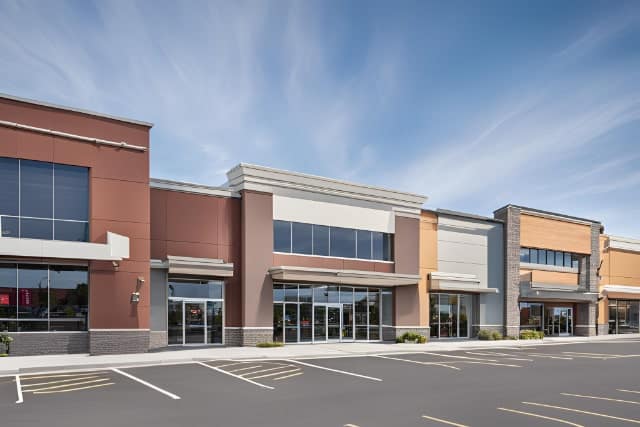You may have heard about LIBOR coming to an end.
Most of us have not given this much attention. However, this shift in the financial realm could have a massive impact on us.
Understanding what LIBOR is and how the transition away from it will impact us moving forward may be crucial to your financial well-being. Let’s learn more about LIBOR and how its demise may change how we do things moving forward.
What is LIBOR?
The London Interbank Offered Rate or LIBOR has been a mainstay in the financial industry for over four decades. LIBOR has been the benchmark used by financial institutions when determining the interest rates you are charged on any form of adjustable-rate loans and most mortgages that have been offered over the past forty years. LIBOR is the method referenced by financial institutions when increasing or decreasing your interest rates on an adjustable-rate loan.
Why is LIBOR Ending?
LIBOR has been the source of controversy since before 2008. However, the financial crisis of 2008 brought renewed attention. There have also been numerous occurrences of LIBOR manipulation by rate-setting banks being uncovered. The ensuing scandals meant that LIBOR was unlikely to remain as a reliable benchmark.
Commercial lending and litigation expert Marc Gotteridge said: “that LIBOR was no longer representing what it was supposed to, LIBOR was meant to be the measure of the cost of funds to banks lending to each other on secured funds in the market, but since there is no longer much of this activity going on anymore, submissions would no longer be required after 2021.”
LIBOR’s Role in the 2008 Financial Crisis
One of the biggest influencers in the 2008 Financial Crisis was credit default swaps (CDS). Rates for CDS was created using LIBOR. The abuse of CDS played a considerable role in the financial crash. After insuring a wide range of risky debts via CDS, large financial companies such as AIG either ended up declaring bankruptcy or were close to the declaration. These bankruptcy declarations led to massive government bailouts. A root cause analysis determined LIBOR as a significant factor in the crash, discussions about the end of LIBOR began.
The Impact of LIBOR’s End
With the end of LIBOR nearing, financial institutions have already started looking for alternative methods they can use to calculate interest rates. SOFR is the frontrunner in replacing LIBOR. These changes will impact both institutions and consumers alike, and understanding this impact is crucial in future financial decisions.
When questioned about the end of LIBOR, Gotteridge said, “it means a lot because LIBOR is the most commonly used reference rate, so there are estimates of hundreds of trillions of dollars worth of instruments of various kinds that are linked to LIBOR.”
Impact on Financial Institutions
While nothing is forcing banks to stop using LIBOR as a reference in 2021 entirely, it is expected to be completely phased out by 2023. Financial institutions will need to be increasingly wary of the risks involved should they continue to use LIBOR. There are a vast number of their existing contracts already determined by this benchmark. Regulatory pressure for institutions to transition away from LIBOR is growing.
This transition is guaranteed to come at a hefty cost to all institutions. The risk of debtors disputing changes to existing contracts with these firms will be significant as they move toward alternative benchmarks. The way firms calculate risk and evaluate strategies will need to change completely; these changes could mean markups for existing long-term contracts. Fall-back provisions have been added to all agreements. However, these were always meant to be a short-term solution if LIBOR was temporarily unavailable. With the end of LIBOR in sight, the economic impact is likely to be significantly negative for most financial institutions after the initial transition.
When asked regarding the impact on financial institutions, Gotteridge replied: “ Banks are forced to consider how to amend our agreements to put something in that is robust enough, so that after 2021 the existing agreements are still enforceable and the people can pay and receive funds according to those terms.”
Impact on Consumers
As a consumer or small business that may have an existing contract that used LIBOR as the benchmark, you can expect to enter renegotiation of adjustable rates. It is essential to know your rights and fully understand the alternative benchmark proposed by the financial institution before signing any formal agreement.
With alternatives such as the secured overnight financial rate (SOFR), requesting a clear timeframe for determining rates is essential. We face one risk as consumers: banks could potentially target dates they predict will have higher SOFR volatility rates to inflate interest rates.
Some financial institutions may to target less knowledgeable consumers with higher rates by manipulating the SOFR volatility. The best protection you have against this is ensuring you read up on best practices before signing any agreement.
Advice for Individual with Existing LIBOR Loans
With over $90 trillion of outstanding debt set to be directly impacted by the transition away from LIBOR, many people will be affected as well. If you are unsure of whether you fall into this category, you can confirm this by doing the following:
- Check your Loan Contract: Your loan contract states if your interest rates are fixed or adjustable; you don’t need to worry about fixed loans.
- Check on the Index: If your loan uses an adjustable interest rate, it should list which index was used.
- Ask Questions: Your financial institution must answer any questions you may have. They may not have all the answers during the initial transition. However, they must be transparent before any new interest rates take effect. Do not hesitate to reach out and ask as many questions as you need to feel comfortable with the changes.
With property becoming an increasingly popular passive income source, you want to understand how these changes affect your earning potential.
Conclusion
During the transition from LIBOR, there is a lot of room for misunderstandings on new fallback provisions and replacement benchmarks. It is preferable for both the creditor and debtor to agree on the replacement before LIBOR’s end date. But, do your research to ensure you are not getting an unfavorable deal.
In many cases, financial institutions have already started the transition. You may see amendments to your current loan contracts. If you do, ask questions and request these changes be communicated clearly and transparently.
You may feel that the end of LIBOR does not affect you. But in truth, it may have a more significant impact on you directly than you initially assumed. The alternative benchmarks may also seem complicated to understand. However, this transition away from LIBOR plays an essential role in reducing the chances of yet another financial collapse.








